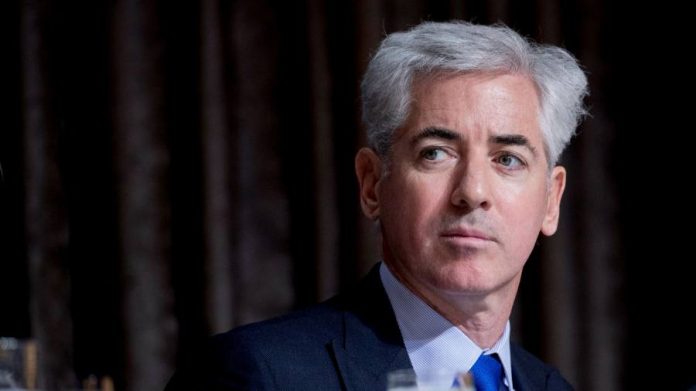Bill Ackman has tried – and failed – to redefine Spac. Now he’s trying again.
The hedge fund manager’s purpose-built acquisition company, Pershing Square Tontine Holdings, which raised $ 4 billion last year, wasn’t just the largest blank check vehicle ever launched. It did away with some of the perks for founders, such as free shares, which gave the Spac phenomenon a bad name in some areas.
Few Spacs followed this model as the new issue boom continued this year, only to suddenly cool off in recent months. With his complex deal announced on Friday to buy a stake in Universal Music and split PSTH into three parts, Ackman is positioning himself for the next phase of the Spac era.
The headline takeover was not what was expected. Instead of buying Bloomberg or Stripe, private companies the size and stature that sold over 4 billion Universal shares to PSTH investors in the US after the company was listed in Europe later that year. That looked more like a short-term hedge fund deal than a traditional Spac deal.
However, it was the other parts of the announcement that could be a harbinger of what awaits Spacs as they move in a new landscape of investor skepticism and regulatory pressures.
After distributing Universal Music’s shares, PSTH will continue to operate as a smaller blank check company that continues to look for targets. There will also be a new vehicle that will give its current investors the ability to fund another future transaction without having to raise the cash upfront like in a traditional Spac.
The tripartite plan initially saw PSTH shares plummet to their lowest price since September last year, but they had rebounded somewhat on Monday as investors digested Ackman’s ability to get out of a troubled position in a fairly elegant way.
The Sparc structure goes one step further than the Spac. . . It involves a slightly less “trust me with the money” situation that we have with Spacs
PSTH is hardly the only Spac struggling to find a full-blown acquisition. More than 400 are looking for fundraising.
Michael Ohlrogge, assistant professor at New York University, said it was difficult for Ackman to find a decent deal, partly because valuations of private companies poised to go public reached feverish heights over the past year.
“Unless Ackman was able to find a deal that could put all of his Spac capital to a reasonable valuation in a company, I think it’s good that he found such a creative alternative,” said Ohlrogge.
Now, investors now have two more ways to get involved in Ackman-led businesses, neither of which are subject to the usual Spacs restrictions.
PSTH will remain a cash shell company that will have access to up to $ 2.9 billion through a funding agreement with Ackman’s hedge fund, but there won’t be a two-year deadline this time around. Pershing Square funds will own approximately 29 percent of the company.
The other vehicle is a new venture that Ackman calls a special-purpose vehicle, or Sparc, whose owners have an option but are not required to participate in the next transaction. The Sparc is listed on the New York Stock Exchange, but unlike a Spac, it won’t raise money until it has found a target, and PSTH investors are not required to exercise the option. If they choose to, they’ll pay $ 20 per share.
Shivaram Rajgopal, a professor at Columbia Business School, said the complicated deal had positive aspects.
“The Sparc structure goes a step further than the Spac and offers investors better options. It involves a slightly less ‘trust me with the money’ situation that we have with Spacs, ”he said.
Recommended
The US Securities and Exchange Commission has slowed the Spac phenomenon since a record number of fundraising in the first two months of 2021. and forced Spacs to make time-consuming changes to the bookkeeping.
Criticism of Spacs has also reached Congress. “It appears that Spac mergers are structured so that Wall Street insiders make huge profits and small investors bear the costs,” said Maxine Waters, the California Democrat who chairs the House of Representatives’ financial services committee, at a hearing last month .
Investor craze for Spacs has continued to wane this year, in part due to poor stock performance by companies that have announced or completed their acquisitions.
The Spacs two-year time limit is believed to result in inferior deals as sponsors who face the loss of their initial investment if they fail to close a deal rush to solicit companies that may not be ready to go the stock market. The Sparc could help ease the pressure and potentially lead to better deals.
“This structure makes a lot more sense,” said Rajgopal. “I think this is Spac 2.0.”
Due Diligence Newsletter
Sign up here to receive due diligence, top stories from the world of corporate finance, straight to your inbox Tuesday through Friday

